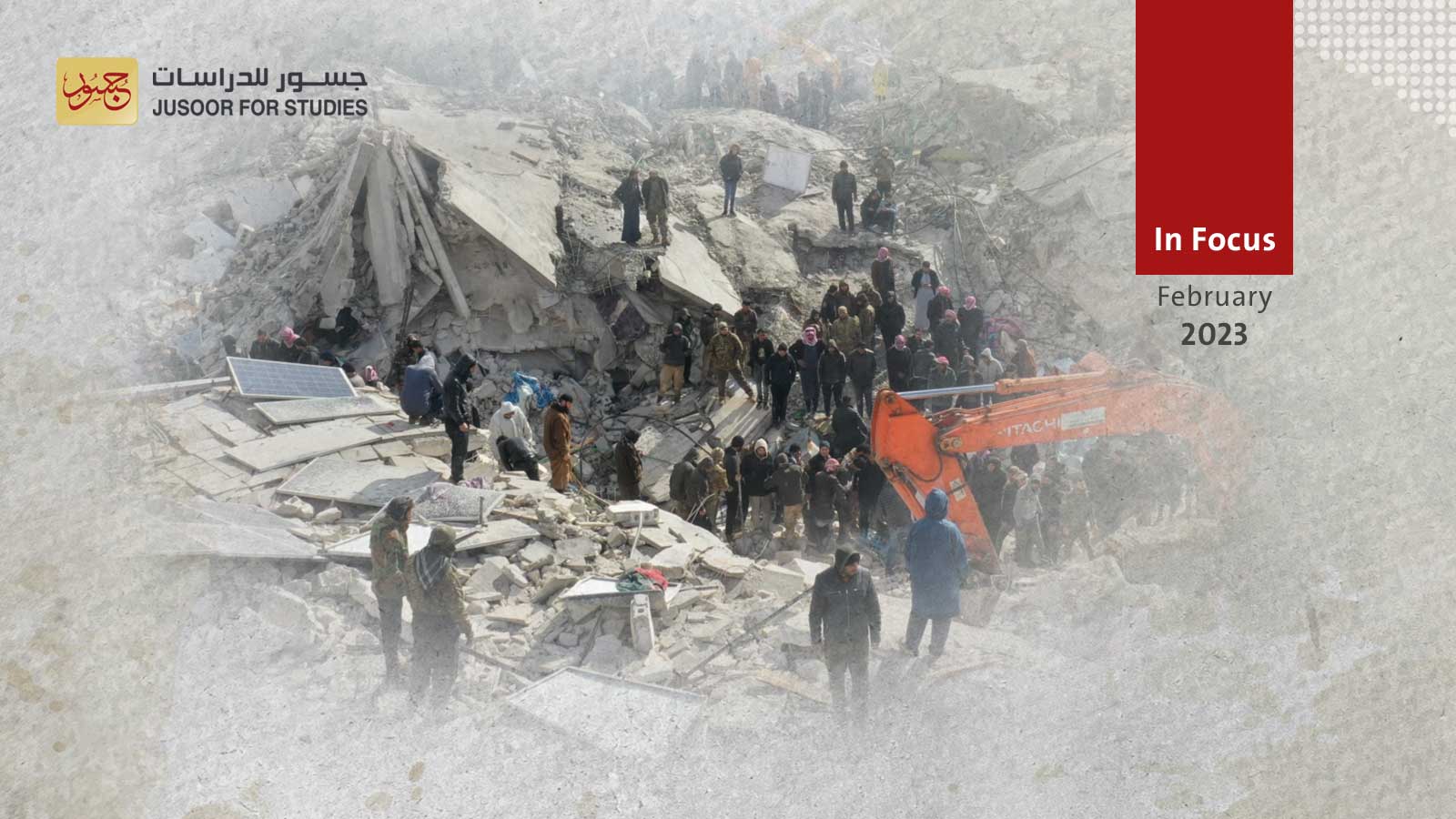Mechanisms to address the Humanitarian Crisis in Northwest Syria
Northwestern Syria is seriously affected by the earthquake, given that it is already a disaster-stricken area. In addition to the aforementioned fact, northwest Syria is highly damaged because most of its residents continuously depend on aid, and that it lacks international legal legitimacy, which greatly limits the possibility of delivering international aid to it.
Data as such makes it a duty for every official and private body operating in these areas to work more professionally in order to compensate for the absence of external support, and to raise the return on available local resources.
In this context, it is possible to work on a set of ideas that help achieve goals as follows:
First: Controlling the political and media discourse, especially among the political, media and intellectual elites, so that no highly charged rhetoric can be issued in a way that might negatively affect building relations with some parties, even from a humanitarian and relief point of view.
Second: Developing operational plans to manage teams of volunteers efficiently and effectively.
Third: Networking between experts and civil society organizations that were formed during the past years.
Fourth: Establishing joint work teams consist of Syrians and Turks in the earthquake zones, at various political, security and field levels, keeping in mind that 30% to 50% of the population of the affected Turkish provinces are Syrians.
Fifth: Formation of a supreme crisis cell, which includes representatives of all political, media, human rights and relief bodies and institutions, with emergency contact numbers for accurate follow-up, unification and coordination of joint efforts.
Sixth: Research centers and civil organizations to carry out accurate monitoring and documentation and build databases for all details of damages, risks, aids, and operations related to crisis management.
Seventh: Direct coordination with the field commanders who emerged from the crisis had a role in mobilizing efforts, in addition to working on controlling tasks and distributing roles among these commanders.
Eighth: Develop a mechanism to coordinate and control the financial donation initiatives being put forward by some entities and some individuals. Moreover, putting forward initiatives for financial and in-kind volunteering in countries with large Arab communities, within the framework of the legal controls and regulations permitted by these countries, so that there is no administrative or legal imbalance might affect donations, donors, or donation tackers.
The humanitarian catastrophe left by the earthquake today is expected to deplete all efforts for months. Accordingly, there is a great humanitarian responsibility towards hundreds of thousands of civilians in the northwestern regions of Syria. Of course, acting according to the current reality while awaiting international intervention will multiply the suffering and tragedies of the afflicted people. This necessitates rapid action by the opposition to prioritize action in correct ways in managing crises and disasters.








